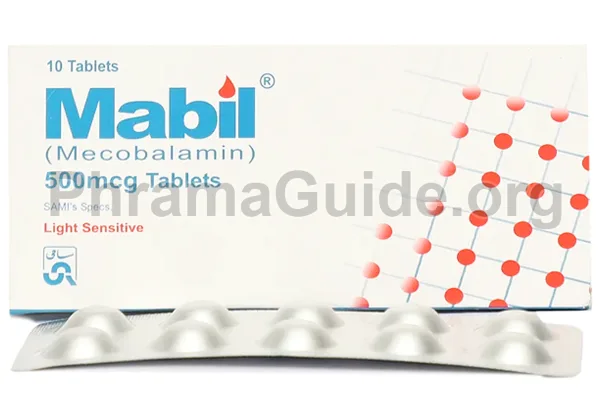Mabil is a form of vitamin B12 that plays a crucial role in various bodily functions, including nerve function and the production of red blood cells. It is often used to treat or prevent vitamin B12 deficiency and related conditions. Like any medication, Mabil can have side effects. It’s important to note that not everyone will experience these side effects, and some people may not experience any side effects at all. Common and less common side effects of Mabil may include.
Common Side Effects
- Pain or swelling at the injection site: Mabil is often administered as an injection, and pain or swelling at the injection site is a common side effect.
- Diarrhea: Some people may experience gastrointestinal disturbances, including diarrhea.
Less Common Side Effects
- Allergic reactions: In rare cases, individuals may experience allergic reactions such as rash, itching, or swelling. Severe allergic reactions are very uncommon but require immediate medical attention.
- Nausea or vomiting: Some individuals may experience nausea or vomiting, although this is not as common.
- Headache: Headaches have been reported in some cases, although they are generally mild.

What is Mabil?
Mabil is one of the leading brands of Mecobalamin, manufactured and marketed by Sami Pharmaceuticals (Pvt) Ltd, Pakistan.
Mabil : Available Formulations and Strengths
Presently, Mabil is available in Tablet and Injection Forms.
Mabil Tablet : 500mcg strength.
Mabil Injection : 500mcg/ml strength.
What Are The Possible Drug Interactions of Mabil?
- Colchicine: Mabil may reduce the absorption of oral colchicine, a medication used to treat gout. If you are taking colchicine, your healthcare provider may need to adjust the dose.
- Chloramphenicol: Chloramphenicol, an antibiotic, may decrease the effects of vitamin B12. While Mabil is a form of vitamin B12, it’s essential to monitor B12 levels if taking these medications concurrently.
- Proton Pump Inhibitors (PPIs): Long-term use of proton pump inhibitors, such as omeprazole or lansoprazole, may reduce the absorption of vitamin B12 (Mabil). This can potentially lead to a deficiency over time.
- Aminosalicylic Acid: Aminosalicylic acid, used in the treatment of certain gastrointestinal conditions, may interfere with the absorption of vitamin B12.

Leave A Comment